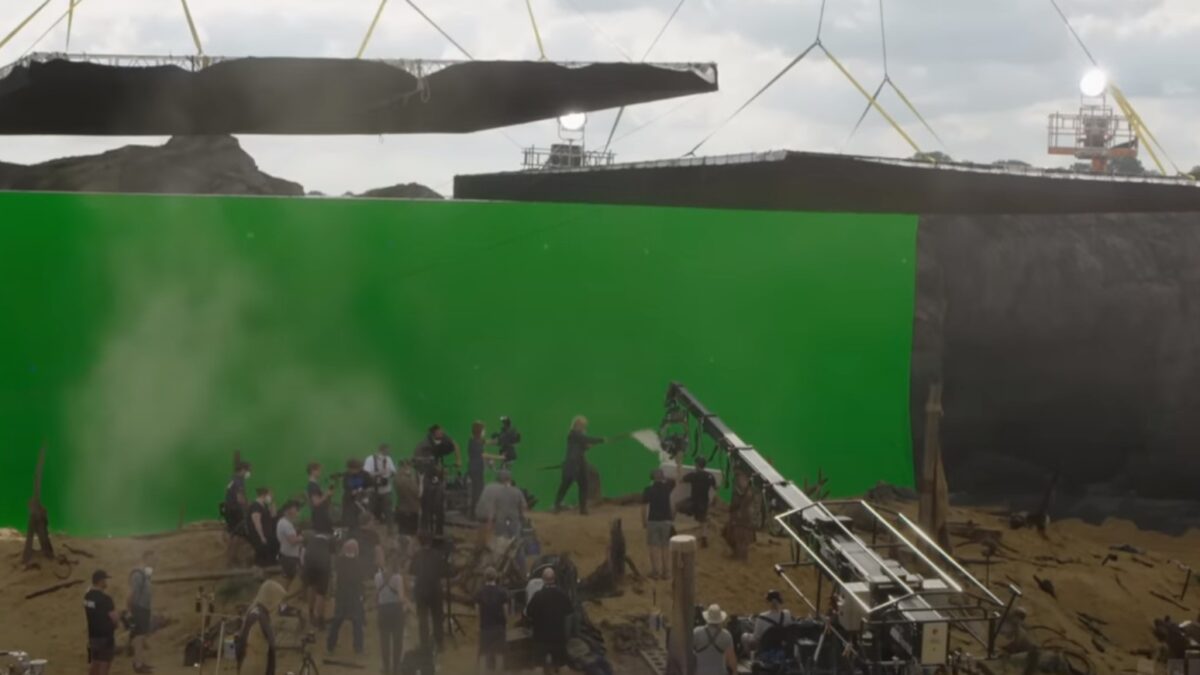Before the Battle of the Five Kingdoms, before the fulfillment of the Song of Fire and Ice, before the prince that was promised and the sundering of the Iron Throne, there were dragons.
Nothing is quite as satisfying as a dark-fantasy series done right. To the delight of fantasy nerds everywhere, this August, HBO took another crack at George R.R. Martin’s ambitious “A Game of Thrones,” three years after the original adaptation’s disastrous finale.
Despite the former series’ disappointing ending, “House of the Dragon” is utterly enchanting. It’s a must-watch antithesis to all modern brain-dead entertainment everywhere.
Returning to Westeros
“House of the Dragon” is a prequel series to “Game of Thrones” set 172 years before that series’ story begins. This new series places focus on the dragon-blessed royal family of Westeros, the Targaryens, and their interfamily squabbles wrestling for control of the Iron Throne.
This time around, instead of multiple kingdoms contending for the throne, there is just one. The story revolves around the benevolent yet naïve King Viserys portrayed by Paddy Considine, his hot-blooded warrior-hero brother Prince Daemon — played by Matt Smith from “Doctor Who” — and his insightful but angst-riddled teenage daughter Princess Rhaenyra votively rendered by an enigmatic Emma D’Arcy.
Unlike the first series’ awful conclusion, this story is faithful to the tone and spirit of George R.R. Martin’s wonderful — yet unfinished — “A Game of Thrones” book series. HBO even let the author handpick the prequel’s showrunners and writing team. “House of the Dragon” is a continuation and heir to everything that made the original HBO series work. It combines the clever politicking and visceral drama of the show’s early seasons with the action and high energy of its later seasons.
Why It Works
A big reason “House of the Dragon” works is that the smaller, more intimate cast is well used by writers that know how to realistically depict the daily conflicts and tensions present in every society. “House of the Dragon” is a story about passing the baton of leadership from the current generation to the next, portraying the dynamics that occur whenever power is transferred and when one generation prepares to pass responsibility to the next.
King Viserys is a wise king who loves peace but fails when confronted with violent conflict and becomes scared that war might destroy his legacy. He, unfortunately, has a significant problem on his hands: there’s a conflict off the coast, and with no male heir, he must find someone to replace him on the Iron Throne.
In contention is whether the Iron Throne will pass to his insightful yet immature daughter, his clever but arrogant brother, or a potential future son. Several questions arise stemming from this, such as: will society handle a woman being a lawgiver, and what makes a person a good leader?
“House of the Dragon” features excellent storytelling while probing the profound questions that have confounded and perplexed every generation.
Refreshing Contrast to Mediocre Entertainment
We are all up to our eyeballs in expensive mediocre entertainment produced by mega-corporations. Such thoroughly soulless corporate mush is typically cooked up by overpaid producers who don’t love the property they’re tasked with developing.
It’s almost as if the entertainment industry forgot its job isn’t just to hold our attention but to fire our imaginations and fill our souls. It feels as though many corporate studios believe viewers should just shovel forward like the undead army of White Walkers that consumes whatever slop is thrown in front of them.
“House of the Dragon” gives viewers more and, in return, expects our brains to engage, as all good entertainment should. If companies or storytellers want to know the way out of our cultural stagnancy, they should follow this path.
Fans must demand quality and intelligent entertainment that stands apart. People don’t crave shows to tell them what to do. Instead, like in “House of the Dragon,” they hope for art that can tell a great story without necessarily taking sides.
The original Game of Thrones worked because it was an intelligent fantasy drama that told a story featuring competing philosophies and complex characters while refusing to endorse a narrative. Instead of viewers being taken captive and forced to observe HBO’s worldview, we instead got to play out these ideas for ourselves.
“House of the Dragon” is excellent and is a likely contender for best show of the year. Currently, only four of this season’s eight episodes have aired, and things could fall apart fast, but if they don’t, then this show could be a defining series of the decade.









